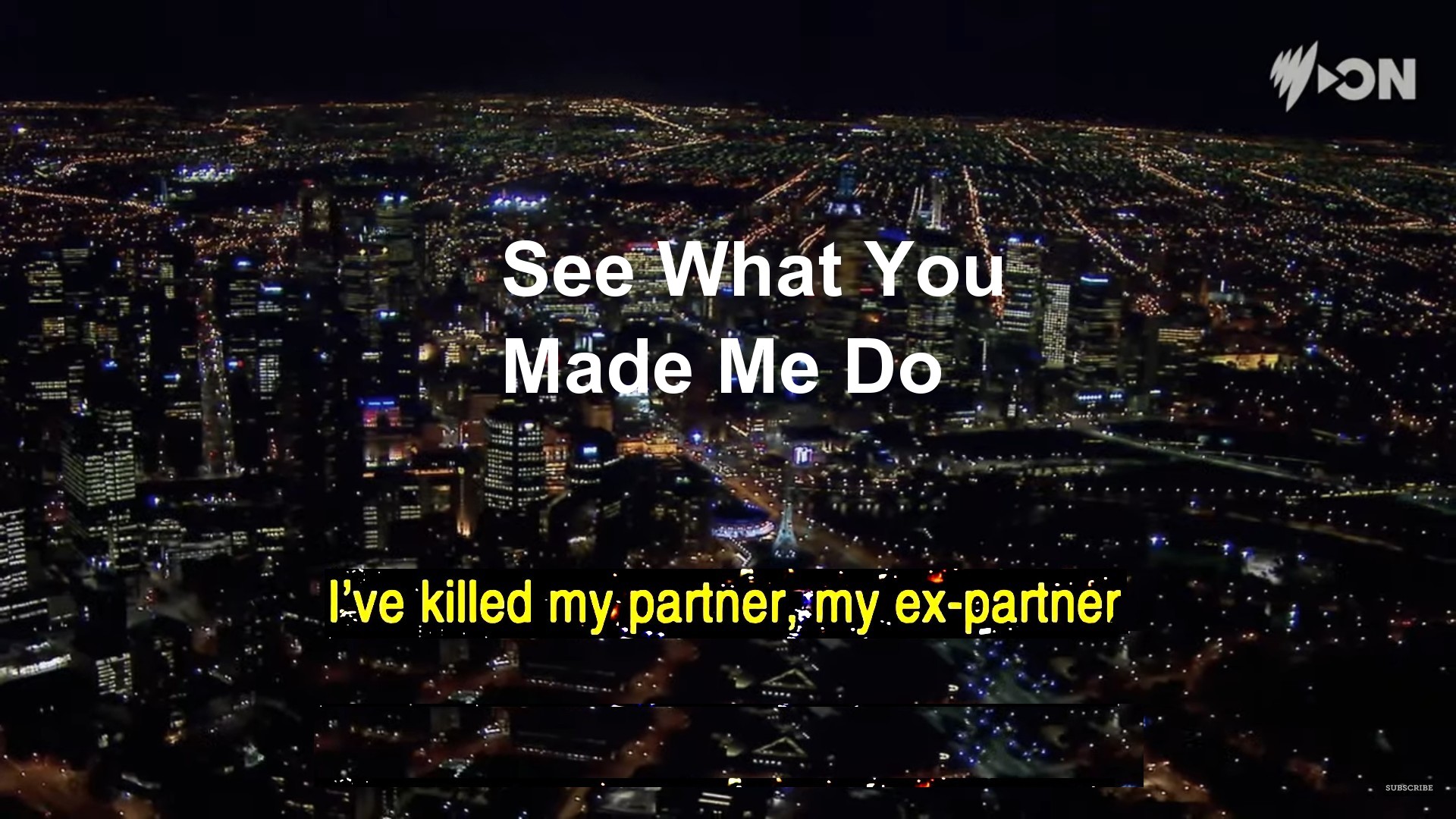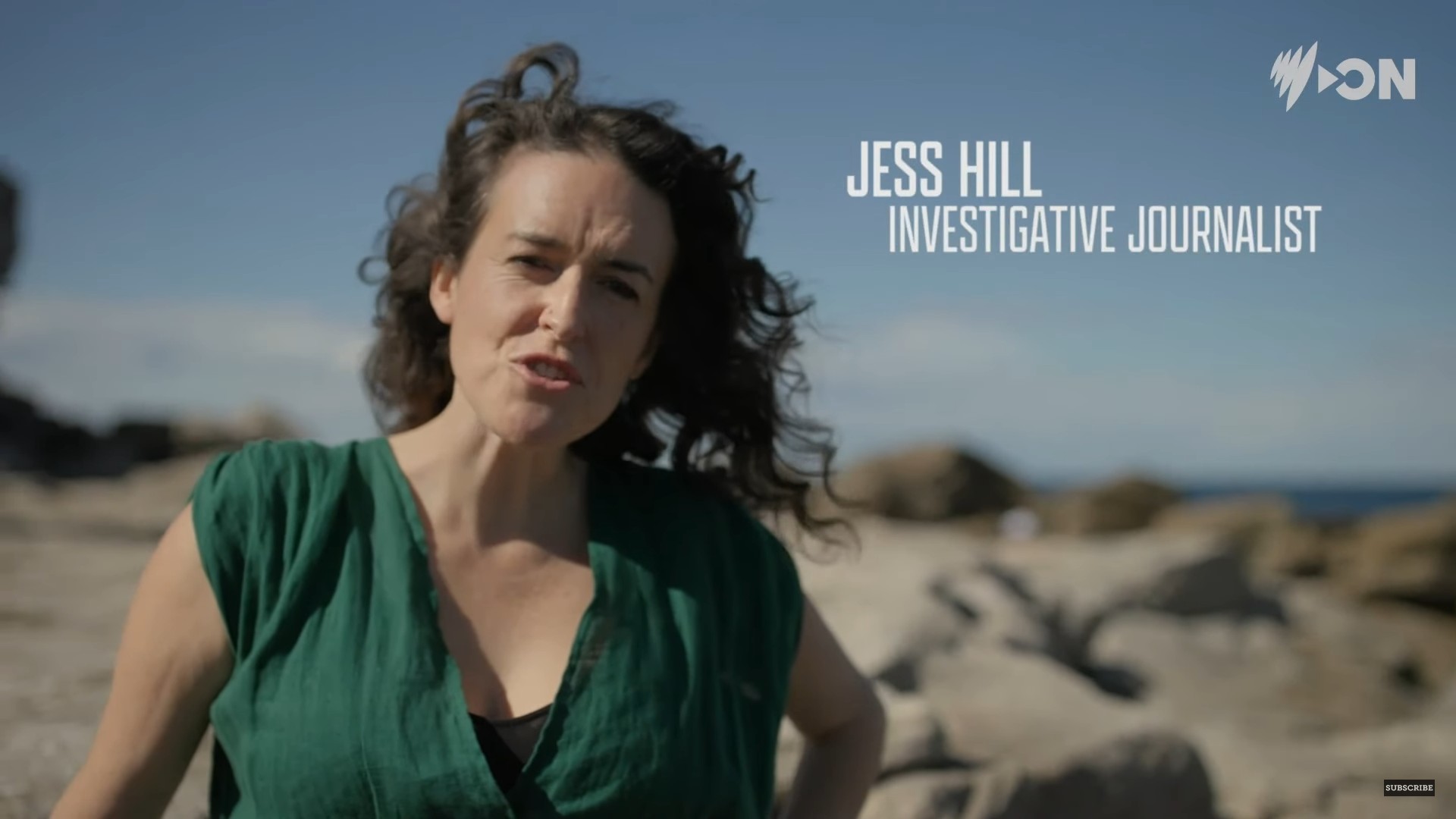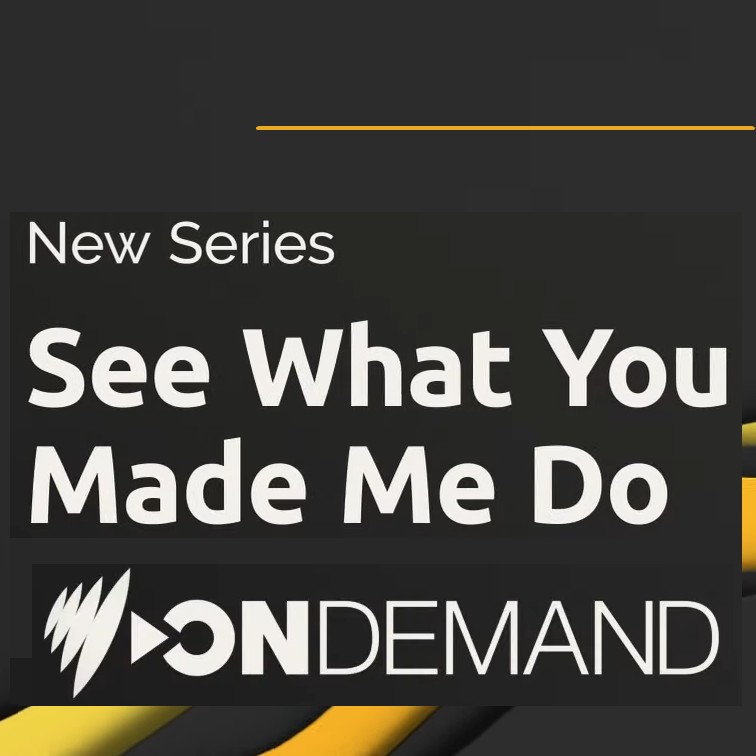On average, one woman a week is killed by a current or former partner in Australia* and most Australians who experience domestic abuse will never report it and their abusers will never be called to account**.
 SBS’s landmark documentary series See What You Made Me Do explores an epidemic that has no signs of slowing.
SBS’s landmark documentary series See What You Made Me Do explores an epidemic that has no signs of slowing.
Hosted by investigative journalist, Jess Hill, and inspired by her award-winning book of the same name, See What You Made Me Do will ignite a crucial conversation about domestic abuse.
The series asks what needs to be done to keep women and children safer and hold perpetrators to account.
Over three episodes, Jess meets victim survivors who describe the shape-shifting of abusive behaviours — with violence one element among many.
 She talks to perpetrators and the people working with them to curb their behaviours. Jess takes us across Australia, and beyond its shores, to explore radical innovations which could make a seismic difference to curbing this crisis in our homes.
She talks to perpetrators and the people working with them to curb their behaviours. Jess takes us across Australia, and beyond its shores, to explore radical innovations which could make a seismic difference to curbing this crisis in our homes.
The series gives voice to the traumatised families left behind, featuring interviews with the parents of Brisbane mother Hannah Clarke and the family of Melbourne mother Katie Haley. Audiences meet long term activist Phil Cleary, whose sister was murdered by an ex-partner. An entire episode will explore the question that Jess Hill has so often been asked in the seven years she has investigated domestic abuse — Why doesn’t she just leave? The story of Tamica Mullaley and her son will leave viewers wondering how these names aren’t indelibly stamped on the national conscience.
See What You Made Me Do programmed during Domestic and Family Violence Prevention Month and will be accompanied by a range of content across the network exploring domestic abuse.
Presenter and Consultant Producer Jess Hill said:
Millions of Australians have been subjected to domestic abuse and coercive control. The time to confront it is now. Domestic abuse is a corrosive force undermining the fabric of our society, and causes immeasurable harm to individuals and families. It is still badly misunderstood, and our systems — police, courts, family law — are still a long way from being reliably protective. In fact, too often, they further enable the perpetrator and perpetuate the abuse. With this SBS series, we hope to kickstart more difficult and honest conversations — in our households, police stations, and parliaments. See What You Made Me Do is paradigm-changing television.
SBS Head of Documentaries Joseph Maxwell said:
See What You Made Me Do raises a challenging but vital discussion about Australia today and the future we could forge. This series exemplifies SBS’s unique role and is one of the most important and outstanding series we have produced because of the way it addresses such a critical issue for our country, in such a powerful way. There’ll also be a range of other programming and content across the SBS network during the month of May, further exploring the topic and engaging all Australians in the discussion.
Northern Pictures Series Producer and Director Tosca Looby said:
It has taken over two years to build See What You Made Me Do from a difficult concept to a fully fleshed, sometimes beautiful, sometimes devastating, always important exploration of domestic abuse and coercive control in this country. When making See What You Made Me Do, we wanted the series to be bold and unflinching. It was imperative that we unlock the gates, open the doors and pull up the blinds where abuse hides. We hope this series encourages a national conversation and bold political action, creating an impact which resonates long beyond broadcast.
During May, SBS will bring audiences a range of programming and online content that builds greater understanding of domestic abuse.
SBS’s news and current affairs programs will air special episodes throughout May as an accompaniment to See What You Made Me Do and Domestic and Family Violence Prevention Month. At 9:30pm on Tuesday 4 May, Dateline will air ‘Dying to Divorce’, an observational documentary filmed over five years that takes viewers into the heart of Turkey’s gender-based violence crisis. Featuring personal stories, the documentary gives a unique perspective on the struggle to be an independent woman in modern Turkey. At 8:30pm on Tuesday 11 May, Insight explores coercive control and whether it should be criminalised.
Directly after the second episode at 9:30pm on Wednesday 12 May, National Indigenous Television (NITV) will air a standalone response program titled We Say No More where panellists unpack how domestic abuse impacts Aboriginal and Torres Strait Islander women. Filmed at the Brisbane Powerhouse Museum with five panellists and a studio audience, revered journalist, artistic director and Bundjalung woman, Rhoda Roberts AO, will host the discussion.
NITV’s Living Black, hosted by Karla Grant, will broadcast an in-conversation with Linda Burney MP at 8:30pm on Monday 3 May. As a survivor of domestic abuse, she will talk about her own experience, and her views on the need for legislation on coercive control. Then on the following Monday, 10 May at 8:30pm, Living Black will air an in-conversation with justice advocates Keenan Mundine and Carly Stanley, talking to Karla about their own experiences of domestic abuse.
On Wednesday 12 May, NITV’s Over the Black Dot and Yokayi Footy will broadcast panel discussions that focus on gender-based violence in sport. At 7pm, rugby league panel show, Over the Black Dot, will talk about the NRL’s Voice Against Violence Program, which increases participants’ awareness and understanding of the serious issue of gender-based violence. Then from 8pm, Yokayi Footy will speak to the AFL Respect and Responsibility Policy, which ensures that people throughout the Australian Football industry are aware and have structures in place that recognise violence against women and behaviour that harms or degrades women is never acceptable.
Immediately following the final episode of See What You Made Me Do on SBS on Wednesday 19 May, Jess Hill will join a panel of experts to discuss solutions that Australia can implement today to solve the family violence crisis. The one-hour special will be hosted by The Feed’s Alice Matthews.
To support the documentary, educational portal SBS Learn will publish resources for school communities and families to better broach and understand respectful relationships. These include videos featuring young leaders speaking about their views on what respect means to them, as well as practical classroom activities and discussion guides. SBS will collaborate with the eSafety Commissioner on these educational outreach projects to extend the important messages in the series. This partnership builds on SBS’ previous collaboration with eSafety, on commissioned drama The Hunting.
 See What You Made Me Do streaming on SBS On Demand with subtitles in six languages: Simplified Chinese, Arabic, Vietnamese, Hindi, Punjabi and Korean, allowing more Australians to engage in the important topic. The issues explored in the series will be explored further across SBS Radio programs, including with an explainer video about coercive control and how migrant women face additional challenges in seeking support, produced in 20 languages. Featuring Jess Hill and Brisbane social worker Jatinder Kaur, the video will be available on the SBS Settlement Guide online and shared across social media by SBS’s language services.
See What You Made Me Do streaming on SBS On Demand with subtitles in six languages: Simplified Chinese, Arabic, Vietnamese, Hindi, Punjabi and Korean, allowing more Australians to engage in the important topic. The issues explored in the series will be explored further across SBS Radio programs, including with an explainer video about coercive control and how migrant women face additional challenges in seeking support, produced in 20 languages. Featuring Jess Hill and Brisbane social worker Jatinder Kaur, the video will be available on the SBS Settlement Guide online and shared across social media by SBS’s language services.
To coincide with series premiere, SBS On Demand will launch a Documentary Essentials collection of curated content on the platform, and Jess Hill will also curate a collection of her favourite films. Both collections will be available from Wednesday 5 May.
The series is available with audio description for blind or vision-impaired audiences.
A Northern Pictures production for SBS. Principal production investment from Screen Australia in association with SBS. Financed with support from Screen NSW.
See What You Made Me Do premiere 8:30pm Wednesday 5 May on SBS and SBS On Demand. The three-part series continues weekly, with every episode will be simulcast on NITV.
References:
* This figure is informed by multiple sources, including:
One woman was killed every week by a current or former partner between 2012-13. Australian Institute of Health and Welfare (AIHW). Family, domestic and sexual violence in Australia (AIHW, 2018
https://www.aihw.gov.au/reports/domestic-violence/family-domestic-sexual-violence-in-australia-2018/summary
One woman was killed every 9 days and one man every 29 days by a partner between 2014-15 and 2015-16. Australian Institute of Health and Welfare (AIHW). Family, domestic and sexual violence in Australia: continuing the national story (AIHW, 2019)
https://www.aihw.gov.au/reports/domestic-violence/family-domestic-sexual-violence-australia-2019/contents/summary
In 2019, 63 women died as a result of domestic violence: Data to 31 December 2019. ‘Counting Dead Women Australia 2019’, Destroy The Joint
https://www.facebook.com/permalink.php?story_fbid=130608758817139&id=111647810713234
In 2020, 55 women died as a result of domestic violence: Data to 28 December 2020. ‘Counting Dead Women Australia 2020’, Destroy The Joint
https://www.facebook.com/permalink.php?story_fbid=130608978817117&id=111647810713234
On average, one woman a week is murdered by her current or former partner:
https://www.ourwatch.org.au/quick-facts/
** Eight in 10 (82%, or 226,000) women and more than nine in 10 (97%, or 146,000) men who experienced violence from a current partner, never contacted the police. Australian Institute of Health and Welfare (AIHW). Family, domestic and sexual violence in Australia: continuing the national story (AIHW, 2019)
https://www.aihw.gov.au/reports/domestic-violence/family-domestic-sexual-violence-australia-2019/contents/summary
